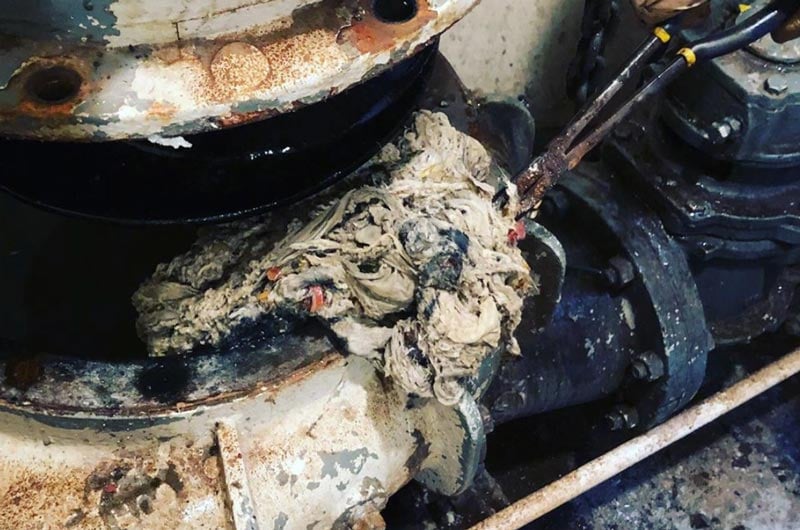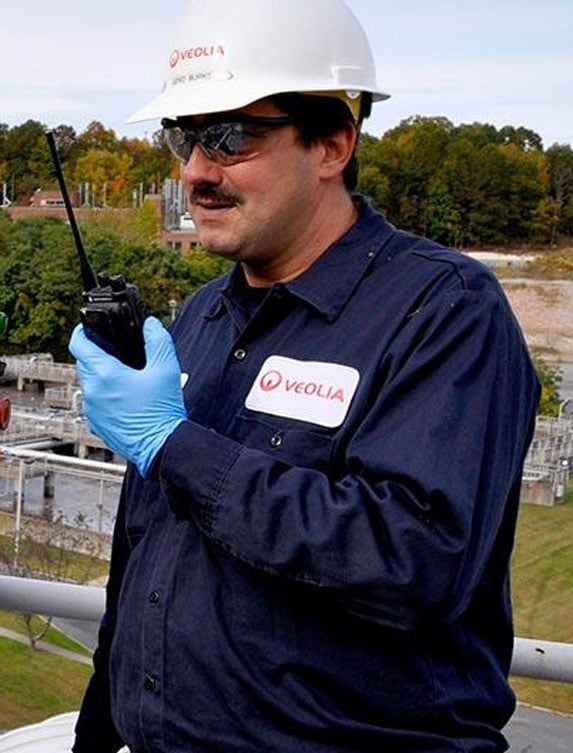The coronavirus (COVID-19) pandemic is posing an unprecedented threat to the health and wellness of America — in more ways than one. Government leaders and medical professionals have urged the public to wash their hands and sanitize objects before touching, which is essential to minimizing the spread of the disease. But in the course of our daily efforts to comply with the latest guidelines, we need to be mindful of how we dispose of wet wipes and other disinfecting materials we use to maintain good hygiene. As the virus spreads, households are putting more and more pressure on our sewer lines, which are not meant to be disposal points for used “flushable” wipes, paper towels, napkins and other materials.
In short, don’t use your sinks and toilets for trash disposal.
Used wet wipes creating backups across the country
As awareness of the virus has increased, a growing number of towns and cities across the country, from California to Massachusetts, have reported blockages in their sewer systems due to buildups of used wet wipes, paper towels and other inappropriate items. In Woonsocket, RI, a neighborhood sewer pipe became so clogged with balled-up wet wipes that it caused basements in four area homes to fill up with raw wastewater. In one home, the backed-up wastewater was ankle-deep. In the end, it took more than 14 hours to fix the problem, at a cost of over $20,000. With scenes like this playing out across the country, it's important to remember that wet wipes and paper towels do not break down in the system as easily as toilet paper, causing backups. Not only can this lead to added costs for municipalities, but it can also be costly for homeowners if the blockage is located in their sink or toilet drain.

Watch out for fatbergs!
Over time, these backups can contribute to large masses of accumulated grease, paper products and other items called "fatbergs" — some of which can extend for hundreds of yards and threaten your community's wastewater system.
Each year, the U.S. spends an estimated $100 million addressing fatbergs in cities large and small, according to the Times of San Diego. In New York alone, such cleanup costs exceeded $18 million. And even in smaller towns, as noted in an investigation by National Geographic, these annual costs can climb into hundreds of thousands of dollars.
At a time when the American Society of Civil Engineers gives the United States a D+ for our country’s wastewater infrastructure, it’s critical we do anything we can to help.
The biggest culprit in creating fatbergs is restaurants disposing of grease without properly operating traps. Take the case of Rialto, CA, where last year there was a significant backup of accumulated grease that caused an overflow at two busy intersections. Several teams from the local wastewater and water facilities, as well as the city’s public works and police departments, spent the better part of a week cleaning a sewer overflow in a local street. Heavy equipment and extra staff were called in to flush and vacuum out the accumulated waste to prevent contamination to nearby waterways.
What does this problem mean to residents and homeowners? For starters, it means higher municipal costs, which could potentially lead to higher tax bills. They can also contribute to traffic congestion and backups as crews are forced to close down busy roadways to respond to backups in the sewer lines.
So as Americans work together to stay healthy and take necessary precautions to prevent the spread of the coronavirus, it’s important to think twice before flushing wet wipes down the toilet. Let’s all keep washing our hands and wiping down surfaces, but when we’re done with that wet wipe or paper towel, let’s throw it in the trash, not down the toilet.
Learn more about wastewater collection networks running to and from treatment facilities to keep local populations safe and healthy.



